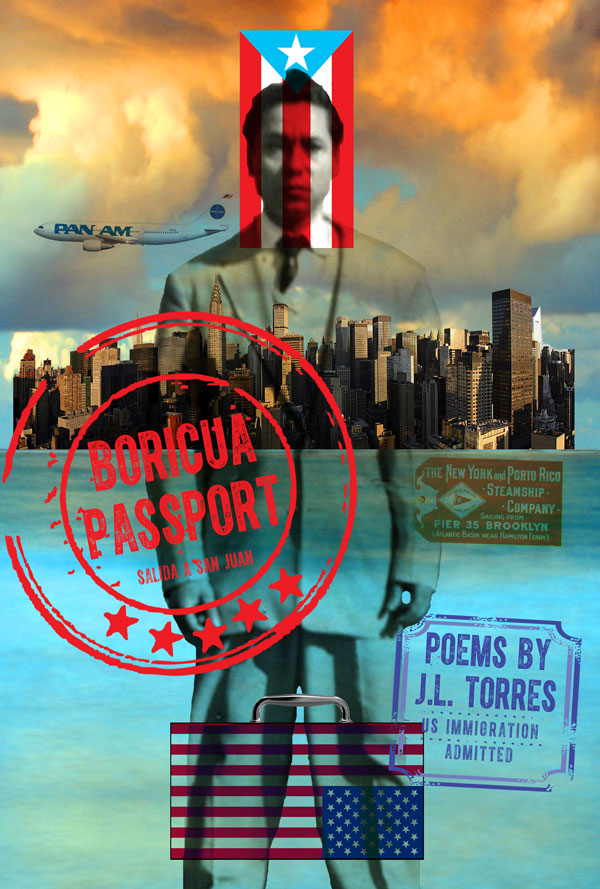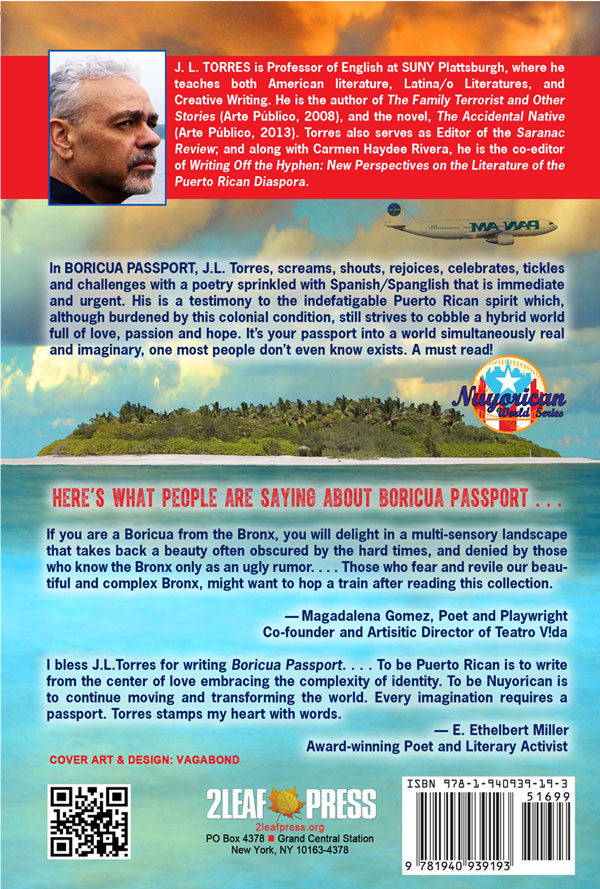BORICUA PASSPORT evokes the complex in-betweeness that represents the contemporary Puerto Rican condition as filtered through the prism of poet J.L. Torres’ life experience. For many Puerto Ricans the sense of being unhomed—having a homeland but not really feeling at home anywhere—is a real lived experience determined by a persisting and unsettled colonial condition. In BORICUA PASSPORT, Torres, screams, shouts, rejoices, celebrates, tickles and challenges with a poetry sprinkled with Spanish/Spanglish that is immediate and urgent. His is a testimony to the indefatigable Puerto Rican spirit which, although burdened by this colonial condition, still strives to cobble a hybrid world full of love, passion and hope. BORICUA PASSPORT will transport any reader into this limbo world with all its fascinating incongruities and descriptive vistas. It’s your passport into a world simultaneously real and imaginary, one most people don’t even know exists. A must read! Cover Design: Vagabond.
Telephone: 646.801.9446















Reviews
There are no reviews yet.